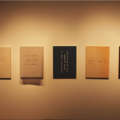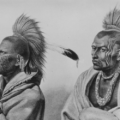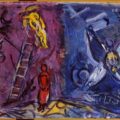Consider the Octopus: On Brenda Shaughnessy

Consider the octopus: bulgy, unappealing, and oh-so-smart. They outwit predators by shooting ink at them and use suction cups to clutch their prey. They squeeze through tight spaces like action heroes or rats. The clever octopus has been known to sneak out of Aquarium tanks at night.
What better symbol for the middle aged woman—for the middle aged woman writer?
The Octopus Museum, Brenda Shaughnessy’s fifth book, continues the exploration of family life that began in Our Andromeda and shares the fluid thematic movements of So Much Synth. But it is a smaller, denser scrutiny of life both of familial and planetary, grounded in Shaughnessy’s off-beat lexicon and intricate notching of vocabulary and thought. Shaughnessy’s collection shares the lyrical storytelling of C.D. Wright’s last book, Casting Deep Shade, and Claudia Rankine’s groundbreaking Citizen. Less ranging and playful as the poems in So Much Synth, less decoratively labored as the poems in her first book, Interior with Sudden Joy, Octopus Museum feels oddly unified in purpose, with emphasis on odd and unit.
Shaughnessy is a master of the sonorous line, and this drives these poems in their Dylan Thomas-esque music and pulse:
What could be queerer than this queer tug-lust for what already is, who already am
But other of it?
Happens? That kind of desire anymore?
Oh I am that queer thing pulling and greener than the blue sea. I’m new with envy.
Beauty washing over itself. No reflection. No claim. Nothing to see.
If there’s anything bluer than the ocean, it’s its greenness. It’s its turquoise blood,
mixing me.
Shaughnessy is obsessed with words and how they move: “Plan: like plane like plain like pain/pane. Like planet. Plan acting like an overlay on everything most elemental.” The narrative thread of the book narrows to motherhood, daughterhood, global sisterhood if you will, all of which are viewed here as a pre-existing condition.
This brings us to the octopus. Shaughnessy describes our COO, Cephalopod Electro-Overlords:
Likewise, COOPS are now called COPS, installed in watchtowers and moats in every human settlement. Most of us work in their salinizing centers. Before, we dumped our waste and garbage into their oceans, and ruined that delicate world.
Their vast home of millions of years destroyed, the COO came ashore. We knew they were intelligent. They could open jars and pretend to be more poisonous creatures than they, ostensibly, were. We found them darling, delicious.
For Shaugnessy, the octopus is not just a way of understanding women—or the rise of the creature perceived weaker, lesser—it is a very particular state of being for the woman herself who feels different, unable to keep up, and finds herself separate:
Watching three mom-like women try to go in, I’m green—I want to join them.
But they are not my women. I join them, apologizing.
They splash away from me—they’re their pod. People are alien.
I’m an unknown story, erasing myself with seawater.
There goes my honey and fog, my shoulders and legs.
The poet-woman and mother-woman balance both worlds and exists entirely in neither. She identifies her children in the writing—irrepressible grade schooler Simone and a special needs tween named Cal. Her turn in the lines from “Identity & Community (There Is No “I” in “Sea”)” is the cry of anyone who can’t meet the status quo: “they are not my women. I join them, apologizing.”
Shaughnessy has written about her son before; Octopus belongs to Simone, to whom the book is dedicated. “I Want the World” mingles Shaughnessy’s desires for her daughter with Simone’s desires for…whatever she wants. The tenacity of mother and daughter is the same. Here the poet writes the disillusionment that will eventually come:
One of these mornings I’ll say goodbye, a routine goodbye when I go to the
FedPlex warehouse to work or pick my rations, and in my absence she will lose that
thread, come to fully understand what she wants is impossible in our world.
All of it, any of it, the tiniest thing, impossible.
I won’t have known but I’ll be walking away from my daughter for the last time,
coming home (wherever home is) to someone new, someone broken off from my
old girl, six years old.
The gift Shaughnessy provides for her daughter is the capacity for illusion:
Here, I tell her, providing a pencil with a pristine, unsharpened end, chew on this.
Nobody’s touched it yet. It’s all yours, darling.
Somewhere I’ll find a blade to sharpen it, and we’ll find a scrap for drawing, a bit of
napkin or a smooth, light stone. For now, you can chew on it. Soon you’ll be able to
draw whatever you want.
A museum is meant to preserve, and Shaughnessy revels in her time here: “I cling to this life. I’ve taped myself to it like a card on a gift. Happy birthday! Many happy returns and hope it’s lots of fun! We miss you! Love, Me.” In her description of humans moving into octopus existence, Shaughnessy lets the speaker admit to missing even the inanity of existence of this twenty-first century: “I miss the technology and the speed…I miss anticipation, goals. Interminable dance / recitals that no one watched because they were recording them on devices.”
The poems are caught between nostalgia and an aversion to history. On the one hand, Shaughnessy is acutely aware of the difference between then and now:
It’s been twenty years since I first came to Paris. This is my eighth visit.
Twenty years ago, I was a target of men. I walked quickly, with purpose, to avoid
being hit, shot, or practice. Now—and maybe since my seventh visit—I can walk
slowly, thinking, at last looking at lights.
On the river, in the sky, in my own hair, silver glimmers I can sense like antennae.
She writes from the cephaolopod researchers’ point of view, giving them free rein in poems to observe—“women are a kind of people”—and to question their rights—“What about future people? / Are children people? / Are babies people? / Are unborn babies people? / Are fetuses people? / Are embryos people? / Are zygotes people? / Are sperm people? / Are ova people? / Are people’s plans to have children people? / Are the ova of people’s children people? / Are the ova of people’s unborn babies people?”
The Cephaolopod struggle to understand distinctions and hierarchies, the inconsistencies of definitions and rights. They discuss the need for people of color to keep every scrap of identification renewed and ready for inspection: “These people are a category in and of themselves— / These documents are and records are proof that dark-skinned people, brown people, people who come from Countries of Color or who have one or more parents from Countries of Color are people, and it is incumbent upon them to keep all records and data updated, renewed, and accurate./This is all for their own protection.” These are the musings of a creature old, wise, and weary. But the poet is not so removed that she can’t articulate a sense of urgency—hers, the world’s—in “New Time Change”:
Individual Octopodes don’t live long (between six months and two years) but as
a species we have extensive, meshed, intergenerational memories. Humans live
longer but each generation forgets what was previously learned.
[insert some simple way—ordinary data, culture-talk—of saying the multiple
meanings here]
[use music? in algorithm? to soothe the news?]
You had your time you took your time after time you had your cake by the ocean
and ate it too but now the tide has turned the times tables too when it’s time to
change you’ve got to rearrange #timesup and for old times’ sake we will remember
you in our time. That time is now. How soon is now. The moon is how we know.
Shaughnessy drops this sort of self-conscious existential commentary throughout. “I was thinking of changing my name to Bakamonotako. It meant The Stupid Little Octopus Girl, she was a character from an old Japanese folk tale,” she writes. Recent history, recent politics, and the coming apocalypse are all present, fictionalized in octopus speak:
We were quite literally gunning for our own extinction, it now seems obvious.
If not by pandemic, or self-inflicted extreme climate events, or border/nation
hysteria, gleefully murderous cops and presidents and dictators, the infinite
variations of pollution and cruelty and deliberate ignorance—we threw children in
prison, we let them be sold—and who was “we”? we wonder, now that we are no
longer us.
This poem is, as others are, a critique of gun violence and our inability to lift ourselves out of the quagmire. That comes to an end with the intervention of Shaughnessy’s octopodes, but she rails within the long sweeping lines:
We chose evil, elected it, protected it, let it maim the animals, steal the land, drop the bombs, poison the water, terrorize the children, fund the greedy, and squander every last chance.
We let guns kill our children on a daily basis. Who are we to say the Octopodes
did anything worse? They’re an ink species. They overwrote us. They dissembled
our guns by dissolving our systems in the middle of our own shoot-out. What we
thought was gun smoke was ink cloud. The writing was never on the wall, it was in
the water. Our names, like Keats’s, writ there.
The book ends with “Our Family on the Run,” which features each member Shaughnessy’s family on a trip—one that involves trans-Atlantic travel and ends with reaching a friend’s destination on foot—without the wheelchair for Cal, her child with cerebral palsy. Cal’s spirit is evident, though he is nonverbal: “It’s red, a color Cal chose by smiling when we said “red” in a list of colors. No expression when we said blue, green, black, purple, or pink. Big smile when we said red. He had his choice and he made it.” Simone carries them forward:
Eventually out of water and arms shredded, I carry Cal, Craig carries me, and
Simone carries us all. Almost seven years old, she is so strong and has some Clif
bars stuffed in a bag. The notebook with all our information is long lost.
She knows where she’s going. How does she know that? She runs ahead and carries
us, her heart pounding and breaking with the weight and strain of all of us in there.
How we navigate misfortune matters, on a micro or macro level. It’s in the color red and the Clif bars. Shaughnessy makes Simone the hero here. Whether it’s real or not, that is important. In one of Octopus Museum’s earlier poems, Shaughnessy writes “after I returned home, I felt a little relief, a snake in the middle of its shedding, knowing there was still this cylinder of self left.” That enigmatic cylinder remains, and it is strong.
About Valerie Duff
Valerie Duff-Strautmann’s poems have appeared in Ploughshares, Poetry Daily, The Common, and elsewhere; recent book reviews have appeared in the Boston Globe, PN Review, and Harvard Review. Her book, To the New World (Salmon Poetry), was shortlisted for the 2011 Seamus Heaney Centre Prize for Poetry. A recipient of grants and fellowships from the Massachusetts Cultural Council, St. Botolph Foundation, and VCCA, she is the poetry editor of Salamander Magazine and works as a freelance writer.





